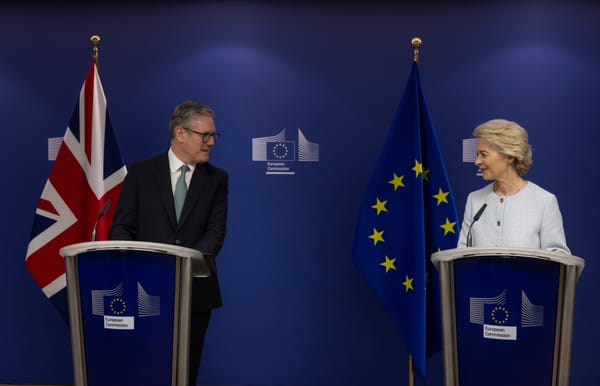Sustainable fashion: H&M is embarrassing itself
Sustainability Editor Flora Dickie still has beef with fast fashion giant H&M.

Oh, we are talking about H&M again?
You might be thinking I should be critiquing another fast-fashion brand like Pretty Little Thing or Boohoo, or even Anthropologie. Plus, why I am focusing on H&M when they are actually 'trying' to be sustainable? What is the reason?
Long story short: H&M is messing with us, and you need to know. Once again, they bestow upon us a masterclass in green marketing and with immense greenwashing energy, something we have reported on before.
Let's get into it.
In late February, media outlets reported that H&M issued a 500-million-euro sustainability bond. The company stated that the bond incentivises meeting their 2025 environmental targets (which are not even close to net-zero). Orders for this debut bond went crazy, $4.6 billion worth, making it 7.6 times oversubscribed. This bond isn't linked to a specific project, as it is instead linked to achieving certain sustainability goals:
- Increase the share of recycled materials used to 30 %
- Reduce emissions from the Group's own operations by 20 %
- Reduce absolute Scope 3 emissions from fabric production, garment manufacturing, raw materials and upstream transport by 10 %
These goals seem so fantastic for sustainability and #savethewhales, right?!
*googles a synonym for no*
The bond-linked targets are weak and simply scratch the surface in tackling major global environmental stressors
Now, these actions are a step in reducing greenhouse gas emissions from their supply chain. However, there is no commitment to becoming a net-zero emission company, nor a commitment to producing fewer garments – the latter being critical considering that 85% of textiles are thrown out each year. Furthermore, considering the number of garments that H&M makes each year, 30% being made of recycled materials really isn't that impressive.
Again, H&M proves that they are incapable of truly understanding sustainability concepts even though they state that 'sustainability is an integral part of our operation'. One website titled its article 'Fast Fashion Slows Down at H&M', co-opting the language of the slow-fashion movement to try and stay relevant. Yet H&M is not slowing down, and it is still fast fashion.
Merely replacing clothing fabric with a more 'sustainable' alternative is not the radical change the fashion industry needs to make. First and foremost, H&M need to reduce the number of garments they produce, reduce the number of annual collections, and put their garment workers at centre stage to ensure liveable wages, contracts and safety.
H&M benefits economically from their sustainability bond's inauguration; even more, as it works as advertising, boosting their sales. The bond-linked targets are weak and simply scratch the surface in tackling major global environmental stressors, like climate change, and major social issues, like labour exploitation.
Consumers must know that we cannot buy our way into sustainability and that, in the words of Audre Lorde, 'The Master's Tools Will Never Dismantle the Master's House'. If you can afford to, avoid all fast fashion.








